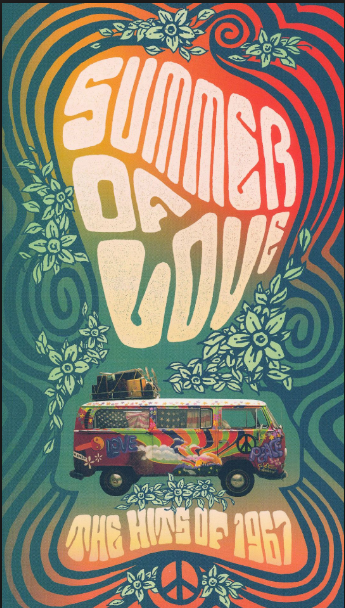The Cake, the Rain, and Positive Mood
The Beatles's “Sgt. Pepper” turns 50 and while Ringo and Paul continue to tour with their respective bands, leaving the celebrating to others, there is a re-release of not only the music but all sorts of other “Pepper” goodies. The Wall Street Journal ‘s Allan Kozinn writes appropriately, “'Sgt. Pepper’s Lonely Hearts Club Band' is an album that demands special treatment.”
Perhaps the most prolific individual hit record writer of the Beatles age, Jimmy Webb, writes in his new book The Cake and the Rain, “My imagination soared under the influence of these Beatles (and “world class LSD”). Sgt. Pepper was nothing less than a heroic album. It was as important as any music ever written.”
But, Webb points out that it was the Beach Boy’s Pet Sounds “which inspired” The Beatles masterpiece. The Fab Four never attempted to play “Sgt. Pepper” on stage “because they thought it would not be possible.” Webb believed otherwise and attempted to set up a concert featuring not only live musicians but to take “the recording studio, all that technological flash, into the concert hall with us.”
What Jimmy hadn’t thought of was the Local 47 musicians union putting the kibosh on the machine, despite “offering to pay each member of the original recording orchestra double scale for the use of the tape at Dorothy Chandler [Pavilion], plus the same amount for every use of the tape in a live setting into perpetuity...”
Webb relates a number of interesting connections with the Beatles in his book. He gave the group a “sudden jolt” with his own masterpiece “MacArthur Park.” George Martin had the lads from Liverpool rush into the studio to lengthen “Hey Jude” to over seven minutes. “It was not a coincidence, George Martin told me,” Webb writes.
John, George, Paul, and Ringo watched the UV meter at Abbey Road “and carefully dialed down the repetitious fade in “Hey Jude” in order to close the margin on the 7:21 of ‘Mac Park.’ The fade in ‘Hey Jude’ had been lengthened by creating a tape loop.”
“Hey Jude” was nominated for a Song of the Year Grammy in 1968, after The Beatles’ won with “Sgt. Pepper” the previous year. Webb’s ”Mac Park” sung by Richard Harris and his “Wichita Lineman” performed by Glen Campbell were left out. However, Jude did not win, Bobby Russell’s “Little Green Apples” took home the prize. However, Webb won for best arrangement and Campbell won album of the year for “By the Time I get to Phoenix.” The title song written by Webb. The best engineered recording Grammy went to Wichita Lineman.
Webb has good things to say about George Harrison and Ringo, but John Lennon and Paul McCartney, not so much. Webb bailed Lennon out of a serious scrap with the law in L.A. but Lennon provided no more than nodding “like a pontiff.” Lennon’s mischief making partner Harry Nilsson thanked Webb, who replied, “Get the fuck out of here and take your asshole with you.”
As for McCartney, “Paul and I were never what you would call friends,” writes Webb.
As for 1967, The Summer of Love’s “Sgt. Pepper,” the WSJ’s Kozinn writes, “You could not have hoped for a more comprehensive tribute to this extraordinary album. It’s past time the Beatles’ other recordings were given the same attention.”
“Sgt. Pepper” has certainly stood the test of time. And so have a couple songs written by Jimmy Webb, released 50 years ago when he was a mere 21 years old. “Up, Up and Away” which hit the charts 3 times with 3 different artists; “By the Time I Get to Phoenix”; and “Paper Cup.” The next year, 1968, was an even bigger year for Webb with 8 chart hits. In 1969, arguably the greatest year in music, he wrote 9 songs that became hits.
In a piece for the Socionomics Institute, Robert Prechter writes “Times of major B-wave peaks [in the stock market], then, seem to foster special creativity.” He cites a comment from a major newspaper “Rock peaked in 1969.” The No Depression website concurs. “So much musical creativity erupted during that year that we have spent the last 45 years just trying to digest it.”
Prechter concludes, “Apparently the mix of a return to peak positive mood during the transition to more negative mood produces an ideal emotional state to motivate people toward peak artistic creativity.”








